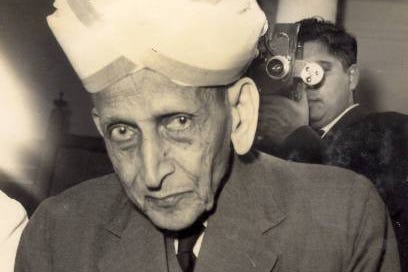NOT Nehru, but Sir M Visvesvaraya was supposed to be first Planning Commission Chairperson...
Commemorating Engineers' Day....163rd Birthday of M. Visvesvaraya
The Engineer
who lived for
101 Years…
who lived for
101 Years…
Economists vis-a-vis Engineers for National Transformation
Mokshagundam Visvesvaraya was the
Father of Planned Economy of India - A Roundtable with Prof. R. K. Khandal and Prof. Surendra Kumar
Father of Planned Economy of India - A Roundtable with Prof. R. K. Khandal and Prof. Surendra Kumar
Former President Pranab Mukherjee had once observed that Planning Commission was Subhash Chandra Bose's brainchild stating:
“He conceptualised and articulated the concept of planning and planned economic development. The fact that he appointed the Planning Commission under the chairmanship of Jawaharlal Nehru… clearly indicated what his ideals were of the government after Independence.”
However, to call Bose the progenitor of the idea of the Planning Commission would be a step too far. That honour belongs to engineer extraordinaire Sir M Visvesvaraya.
It all started in 1934.
Known more for creating Engineering Marvels, Sir M Visvesvaraya was also a great believer in economic planning.
In 1934, he authored a book titled 'A Planned Economy for India', which would make him the father of the Planning Commission as well. He published numerous others on village industrialisation, nation building and unemployment.
In fact, he wanted to set up car and aeroplane factories in India, a generation ahead of his time, but it was vetoed by the British. In fact, his idea of planned economy even beat that of the Soviets, and he would speak about vigorously in the early part of the 20th century. He would discuss it and practice it as chief engineer and Diwan of erstwhile Mysore state between 1909 and 1918.
In 1938, scientist Meghnad Saha had persuaded Subhash Chandra Bose, erstwhile Congress president to set up a planning commission to get India started on the road to industrialisation.
The National Planning Committee was being headed by Sir M Visvesvaraya, who however was urged to step down and let former PM Nehru take the spot.
Saha argued that planning was a mixture of science and politics. Visvesvaraya stepped down and Nehru went on to head National Planning Committee.
The two stalwarts’ fates were intertwined, and he would be awarded the first Bharat Ratna along with Jawaharlal Nehru and Bhagawan Das. His choice was unusual, not populist by any stretch of imagination and he remains the only engineer to get India’s highest civilian honour.




